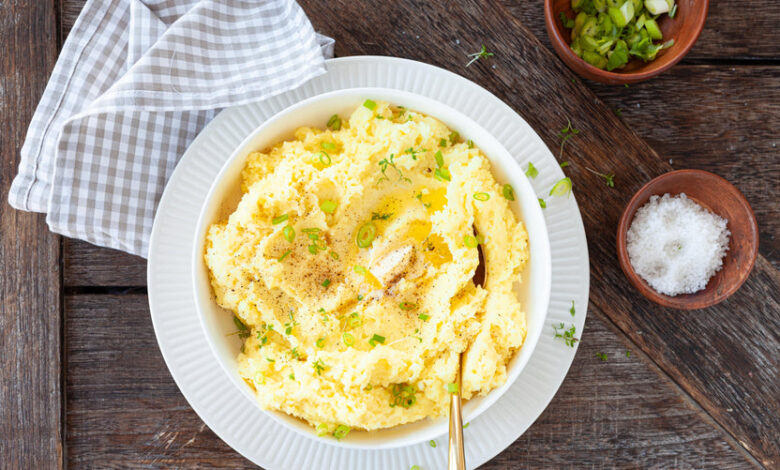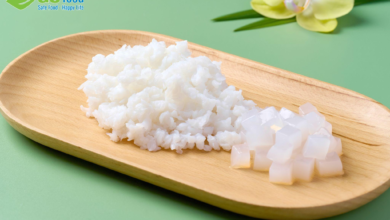Can Mashed Potatoes Fit Into Your Post-Gastric Sleeve Diet?

What Happens After Gastric Sleeve Surgery?
When you undergo gastric sleeve Turkey, your stomach is reduced to about 20% of its original size. This smaller stomach restricts how much food you can eat at one time and changes how your body digests and absorbs nutrients. As a result, your post-surgery diet must focus on small portions of nutrient-dense foods that support healing and weight loss.
Are Mashed Potatoes Allowed?
The answer is yes, but timing and preparation are critical. Mashed potatoes can be introduced during the pureed food phase, typically a few weeks after surgery. However, they should be prepared in a way that aligns with your nutritional needs—low in fat, low in added sugar, and portion-controlled.
Why Mashed Potatoes Are a Popular Choice
Mashed potatoes are easy to eat and digest, making them appealing during recovery. Their soft, creamy texture makes them a suitable choice for the pureed foods phase. However, traditional recipes often include butter, cream, or cheese, which can add unnecessary calories and fat.
Making Mashed Potatoes Work for You
Here are some tips to enjoy mashed potatoes without compromising your progress:
- Focus on Portion Control: Stick to small servings (a few tablespoons) to avoid overloading your stomach.
- Make Healthier Swaps: Use low-fat milk, broth, or Greek yogurt instead of cream. Minimize or skip butter entirely.
- Try Sweet Potatoes: They’re rich in fiber and vitamins and naturally sweeter, so they require fewer calorie-laden additions.
- Pair with Protein: Combine a small portion of mashed potatoes with a protein source, like shredded chicken or soft fish, for a balanced meal.
Alternatives to Traditional Mashed Potatoes
While mashed potatoes can be comforting and delicious, they’re not always the best option for those seeking lower-carb or more nutrient-dense choices after gastric sleeve surgery. Thankfully, there are plenty of alternatives that offer similar textures and flavors while aligning better with your post-surgery dietary goals. Here are some great options to consider:
1. Cauliflower Mash: A Low-Carb Substitute
Cauliflower mash is one of the most popular alternatives to traditional mashed potatoes, and for good reason. It’s low in carbohydrates and calories, making it ideal for anyone looking to manage their weight and blood sugar levels.
- Nutritional Benefits: Cauliflower is rich in fiber, vitamin C, and antioxidants, which support digestion and overall health.
- Preparation Tips: Steam or boil cauliflower until it’s tender, then blend it with low-fat milk, broth, or a small amount of olive oil for a creamy texture. You can even add garlic or herbs like parsley for extra flavor without adding unnecessary calories.
2. Root Vegetable Mash: A Flavorful and Nutritious Option
Root vegetables like turnips, parsnips, and carrots offer a slightly sweet and earthy flavor while providing a boost of vitamins and minerals. These veggies can be mashed individually or combined for a unique taste profile.
- Turnips: Low in calories and carbohydrates, turnips provide a mild flavor that works well as a potato alternative. They’re also a good source of vitamin C and fiber.
- Parsnips: Rich in potassium and vitamin K, parsnips have a naturally sweet taste that makes them a great complement to savory dishes.
- Carrots: High in beta-carotene and vitamin A, carrots add a vibrant color and a hint of sweetness to your mash.
- Preparation Tips: Peel and boil your chosen root vegetables until soft, then mash them with a splash of broth or low-fat milk. For added depth, mix different vegetables together, like carrots and parsnips, to create a nutrient-packed side dish.
3. Vegetable Purees: A Creamy and Light Alternative
Pureed vegetables like broccoli, zucchini, or squash can serve as excellent substitutes for mashed potatoes. These non-starchy vegetables are lower in carbs and calories, making them an ideal choice for those prioritizing nutrient density.
- Broccoli Puree: Packed with vitamins C and K, broccoli puree offers a slightly nutty flavor and pairs well with proteins like chicken or fish.
- Zucchini Puree: Zucchini’s mild flavor and high water content make it easy to blend into a creamy mash. It’s also rich in potassium and antioxidants.
- Squash Puree: Butternut squash or acorn squash provide a slightly sweet flavor, along with a healthy dose of vitamin A, fiber, and antioxidants.
- Preparation Tips: Steam or roast the vegetables for a richer flavor, then puree them with a touch of seasoning. You can add spices like nutmeg, cumin, or paprika to elevate the taste while keeping it light and healthy.
4. Blended Legumes for a Protein Boost
Legumes like lentils or chickpeas can also be pureed into a mash-like consistency, offering a protein-rich and filling alternative to potatoes. They’re high in fiber and provide a creamy texture when blended.
- Preparation Tips: Cook the legumes until tender, then blend them with garlic, lemon juice, and a splash of olive oil or broth. This option is especially great for pairing with vegetables or lean proteins.
5. Mashed Sweet Potatoes: A Balanced Option
While sweet potatoes are still a starchy vegetable, they’re often considered a healthier alternative to traditional white potatoes. They’re rich in fiber, vitamin A, and antioxidants, making them a nutrient-dense choice.
- Preparation Tips: Steam or bake sweet potatoes and mash them with a small amount of low-fat milk or Greek yogurt. For extra flavor, sprinkle cinnamon or nutmeg on top without adding sugar.
-
Why Explore Alternatives?
These mashed alternatives provide not only lower-carb and lower-calorie options but also offer diverse flavors, textures, and nutrient profiles to enhance your meals. By experimenting with these choices, you can find a side dish that works well for your post-surgery lifestyle while keeping your meals enjoyable and varied.
Long-Term Success
While mashed potatoes can be part of your post-surgery diet, they should be eaten mindfully and as part of a balanced diet. Focus on variety, portion control, and nutrient-dense foods to ensure you’re meeting your health goals. By listening to your body and consulting your healthcare team, you can enjoy foods like mashed potatoes without compromising your progress.
Mashed potatoes can be a comforting and nutritious addition to your diet after gastric sleeve surgery if prepared thoughtfully. By making smart ingredient choices, controlling portions, and listening to your body, you can enjoy them during recovery and beyond. Remember, your journey is about finding balance—comfort foods included! For tailored advice and support, always consult with your dietitian or healthcare provider.
If you’re navigating life after gastric sleeve surgery and wondering how to make the best food choices for your recovery and long-term success, Luna Clinic is here to guide you. Our team of experienced healthcare professionals specializes in post-surgery nutrition and lifestyle support, helping you make informed decisions tailored to your unique needs.
From meal planning to managing cravings, we’re here to ensure you feel confident every step of the way. Visit Luna Clinic today to schedule your personalized consultation and take the next step toward a healthier, more balanced life. Your journey matters—let’s make it a success together!

